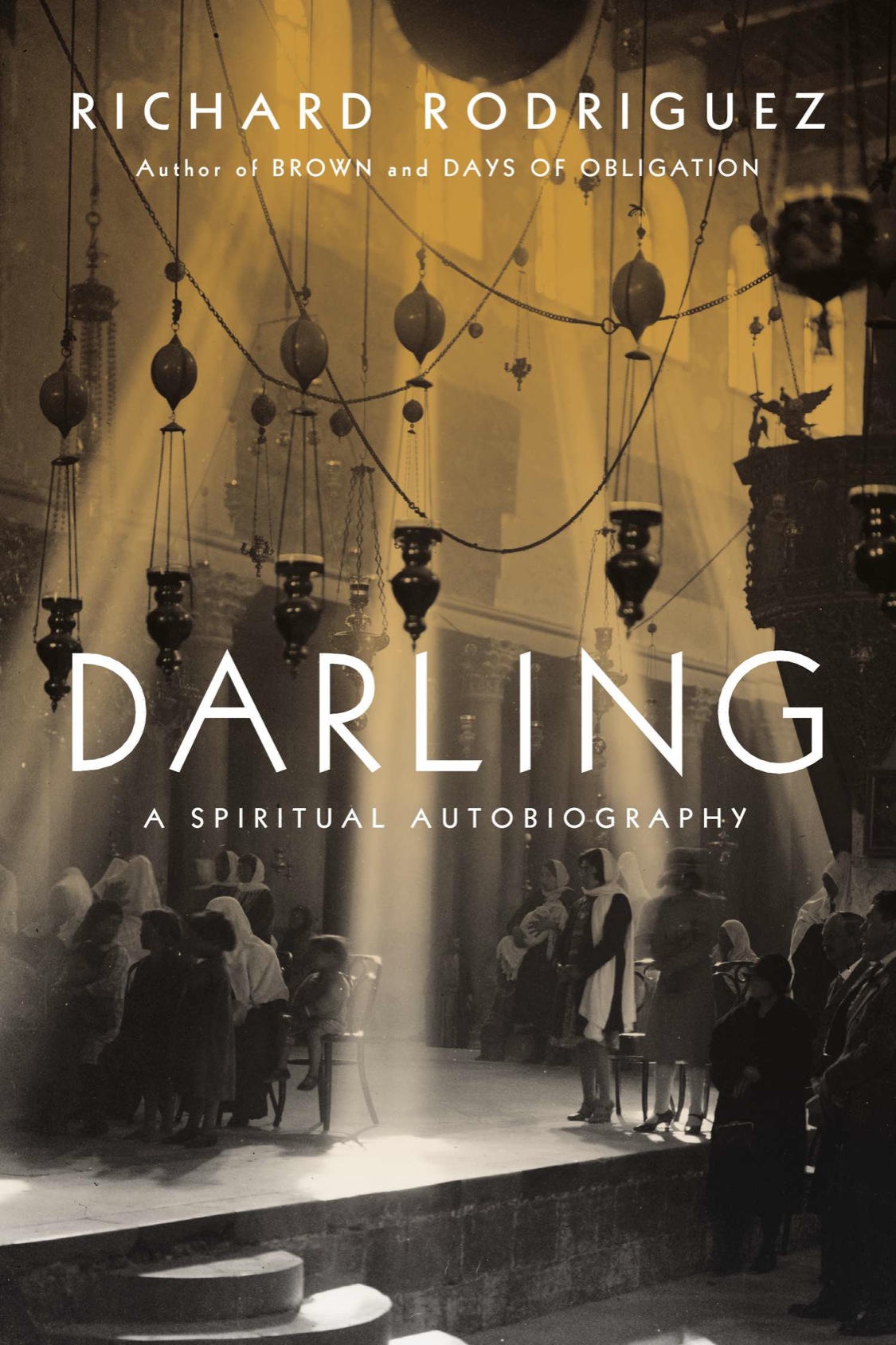
Darling
A Spiritual Autobiography
کتاب های مرتبط
- اطلاعات
- نقد و بررسی
- دیدگاه کاربران
نقد و بررسی

September 23, 2013
Rodriguez (Hunger of Memory) wrote so many well-received essays on the American religious climate after 9/11, often in the context of his own struggle in faith, that he turned them into a book-length narrative about his Roman Catholic formation during the past decade. His pilgrimage begins with "the realization that the God I worship is... the same desert God the terrorists prayed ," meanders through ruminations on "small wounds" in a meditation that involves Lance Armstrong and Sheryl Crow, and comes to a slow finish with a smile from Christopher Hitchens and a brief tribute to Mother Teresa. Much like his writing, Rodriguez has been all over the place, traveling, thinking, observing. By the end of his book, he leaves the reader feeling like it all fits together, as if all his essays give "a senseâno, not a sense, a reasonâwhy everyone matters." And more importantly, Rodriguez doesn't beat this discovery over the reader's head but unpacks it gently, over the course of years, in seemingly disjointed stories that explain one writer's journey to a God of many. Agent: Georges Borchardt, Georges Borchardt Literary Agency.

Starred review from September 1, 2013
An acclaimed gay intellectual and journalist's musings on the state of and interrelationship among Christianity, Judaism and Islam in the post-9/11 digital age. In this collection of essays, Rodriguez stylishly delves into the meaning of life, death, sexuality and the printed word in the 21st century by examining his own Christian faith. The events of 9/11 awakened him to the fact that the God he worshipped as a Catholic was "the same desert God [to which] the terrorists prayed." He went to Jerusalem to experience the "ecology" of the place that gave rise to not only Christianity, but also Judaism and Islam. In the emptiness of the desert, the printed word came to have sacred status for all three religions. What partially distinguished them were notions of paradise. "For Jews," he writes, "Eden was pre-desert [and] [f]or Christians and Muslims, paradise...[was] post-desert." Rodriguez transforms his insights into lenses through which he views not only himself and the gay community to which he belongs, but also American culture. A friend's Easter Sunday death from AIDS in the Las Vegas desert becomes an occasion to ponder the campy neon paradise the city represents. A beloved female friend he refers to only as "Darling" becomes the focal point for witty meditations on how Rodriguez's own place as a homosexual in both the church and society depends on female empowerment, or lack thereof. The death of newspapers becomes a way for the author to reflect on the rise of technology. In this new "enlarging, unstable [and] ethereal" world, the former weightiness of words has been replaced by a disturbing relativism. Like newspapers, sacred texts such as the Bible, Torah and Quran become little more than objects stripped of meaning. With compassion and profundity of vision, Rodriguez offers a compelling view of modern spirituality that is as multifaceted as it is provocative.
COPYRIGHT(2013) Kirkus Reviews, ALL RIGHTS RESERVED.

Starred review from August 1, 2013
Rodriguez (editor, Pacific News Svc.) has long been something of a darling among readers for his memoirs Hunger of Memory and Days of Obligation, books that touch with unusual eloquence on his rich experience of his Mexican heritage, his sexuality, and his negotiations with politics and culture. This latest work, stemming from a piece he wrote for Harper's in 2008, is about his difficult confrontation with both God and the experience of emptiness; Lance Armstrong, Mother Teresa, and others make appearances as well. VERDICT Engaging and readable, this highly personal and candid discovery of the fullness of God in the silence of life's deserts may not offer anything new to spiritual seekers but will delight Rodriguez's fans.
Copyright 2013 Library Journal, LLC Used with permission.

























دیدگاه کاربران